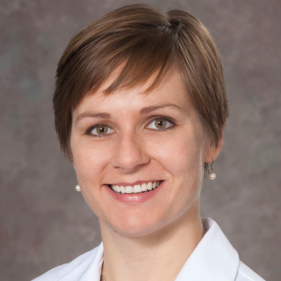How health policy experts help California lawmakers make evidence-based decisions

March 1, 2024
By Bill Daehler
When the California State Legislature wants to understand the impacts of a proposed bill, where do they look? For legislation relating to health insurance benefits, lawmakers look to the California Health Benefits Review Program (CHBRP).
Upon request from the state legislative health committees, CHBRP provides analyses of the medical, financial, and public health impacts of legislation affecting health insurance benefits and mandates. Typically, legislation proposes that insurers provide coverage for medical tests, services, or treatments, or certain types of clinicians. Other bills have focused on cost-sharing methods used by insurers.
“We analyze scientific evidence about the medical effectiveness or public health impacts of proposed bills so legislators can make informed policy decisions,” said Elizabeth Magnan, CHBRP vice chair and UC Davis Health family and community medicine associate professor. “This is a unique program. We work in conjunction with other UC campuses and CHBRP staff to produce neutral, non-partisan analyses to support evidence-based deliberations among lawmakers. This allows the legislators to draw their own conclusions from the evidence.”
Through CHPR, the UC Davis team has produced almost 100 analyses since 2005. In a three-month window each year, the team can be asked for three to nine analyses.
Magnan says this systemwide collaboration enables analyses to incorporate a wide range of expertise and insights that is valuable to lawmakers. She is also a faculty affiliate of the UC Davis Center for Healthcare Policy and Research (CHPR), which coordinates the UC Davis CHBRP team.
CHPR has been a key contributor to CHBRP since 2005, three years after CHBRP was established per state statue AB 1996. Joy Melnikow, professor emeritus of family and community medicine, recently stepped down as a vice chair of CHBRP after serving in the role for more than 10 years. Now, Magnan is leading the UC Davis team in completing medical effectiveness and public health analysis sections of the bill analyses for CHBRP.
The UC Davis team has offered a unique contribution to the CHBRP task force through its engagement of faculty physicians like Melnikow and Magnan as well as Aimee Moulin, a clinical professor of emergency medicine. CHPR researchers Bethney Bonilla, Margaret Fix, Julia Huerta, Marykate Miller, Katrine Padilla, Dominique Ritley, and Meghan Weyrich comprise the rest of the UC Davis team.
We analyze scientific evidence about the medical effectiveness or public health impacts of proposed bills so legislators can make informed policy decisions.—Elizabeth Magnan, associate professor in the Department of Family and Community Medicine at UC Davis
CHBRP works under tight deadlines—60 calendar days—to deliver analyses before Senate and Assembly health committees formally consider a health insurance mandate bill. This year, the UC Davis CHBRP team is analyzing a diverse set of proposed bills:
- SB 1180 Emergency Medical Services, coverage of community paramedical and mobile health services.
- AB 3245 Colorectal Cancer Screening, full coverage of grade A and B colon cancer screening recommendations from any accredited guideline.
- AB 2843 Rape and Sexual Assault, coverage of emergency and follow up healthcare, regardless of its use for evidence.
- AB 2467 Menopause, coverage of treatment for perimenopause and menopause.
Once a draft analysis is completed, the report undergoes an internal review by CHBRP leadership and then an external peer review by national experts. The finalized analysis is submitted to the Legislature within 60 days of receiving the initial request.
The value of CHBRP contributions to the policy arena is evidenced by its four reauthorizations by the Legislature since its inception and that the reports are cited by lawmakers from both sides of the aisle during committee hearings. Proposed legislation and past reports are accessible on CHBRP’s website.
The Center for Healthcare Policy and Research’s mission is to facilitate research, promote education, and inform policy about health and health care. The goal is to improve the health of the public by contributing new knowledge about access, delivery, cost, quality and outcomes related to health care and providing rigorous evidence to policymakers and other stakeholders. CHPR executes its mission through interdisciplinary and collaborative research; education and career development; and research synthesis and dissemination.

